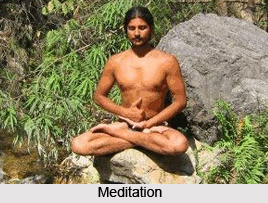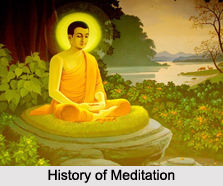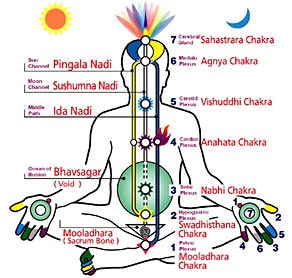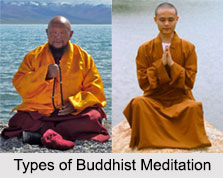 Meditation may be described as a state of concentrated attention on a thought, or on awareness. This thought process is, to turn the attention inward, to the mind itself. Meditation has myriad physical, psychological and spiritual benefits. One of the primary benefits of meditation is it allows one to think in a positive manner. It has the ability to refill mental and emotional energy while enabling one to create new attitudes to respond life in a rather positive sense whilst offering him a clear, spiritual understanding of his own self. Meditation is practiced in various ways. However, the important part of all the meditations is the breathing techniques involved. Whatever the meditation procedure is, proper breathing during the process is of utmost significance. As breathing has an important role in respiration. All the meditations involve voluntary control of respiration, which has an important effect on mind and body.
Meditation may be described as a state of concentrated attention on a thought, or on awareness. This thought process is, to turn the attention inward, to the mind itself. Meditation has myriad physical, psychological and spiritual benefits. One of the primary benefits of meditation is it allows one to think in a positive manner. It has the ability to refill mental and emotional energy while enabling one to create new attitudes to respond life in a rather positive sense whilst offering him a clear, spiritual understanding of his own self. Meditation is practiced in various ways. However, the important part of all the meditations is the breathing techniques involved. Whatever the meditation procedure is, proper breathing during the process is of utmost significance. As breathing has an important role in respiration. All the meditations involve voluntary control of respiration, which has an important effect on mind and body.
Effect of Meditation in Respiration
The meditation and yoga has great effect on reducing many diseases as it controls the respiration and temporal lobes of brain directly. Basically respiration is one of the involuntary physiological functions, upon which a volitional control can easily be exerted and this is what is exactly done in meditation. Respiration has four stages which are ventilation, diffusion, transport of gases and control of respiration.
Meditation has an important effect on different respiratory parameters which involves the capacity to hold the air by lungs and nasal passages. The meta-analysis show that respiratory rate vary in different meditation techniques. The respiratory rate generally decreases from premeditation to meditation, which requires a reduced inflow of oxygen. This also results in reduced production of carbon dioxide. The breathing is often suspended in meditation, which has distinct psychological and physiological effects. As the flow rate of respiration changes during meditation, the pressure on diaphragm also changes. Since the oxygen is suspended for prolonged time within the body, blood purification properly occurs. The inhalation and exhalations are long and counted during meditation, which has a prolonged effect on mind and body. It is a well-established fact that mind and body are together pacified after the meditation, which has a correlation with breathing control.



